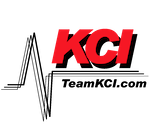Key Factors to Consider in Third-Party Hardware Maintenance Contracts
When considering third-party hardware maintenance contracts, several key factors should be carefully evaluated to ensure the right fit for your business. By incorporating research-backed user-centered marketing principles, we can explore these factors in detail to help you make an informed decision.
Experience and Expertise
Choose a provider with a proven track record in maintaining a wide range of IT equipment, including servers, storage, and network devices. Their experience and understanding of multi-vendor support situations are crucial for ensuring comprehensive maintenance support.
Customized Support
Opt for a provider that offers flexible and customized support tailored to your specific requirements. This ensures that the maintenance services align with your business goals and IT infrastructure, ultimately leading to a more personalized and effective maintenance approach.
Cost-Effectiveness
Compare the costs of third-party maintenance contracts with OEM maintenance contracts. Third-party maintenance providers can offer cost savings of up to 70%. Ensure that the contract includes cost-effective provisions for equipment maintenance and support, ultimately leading to significant cost reductions.
Extended Equipment Lifespan
Third-party maintenance can extend the life cycle of your hardware beyond the point determined by the OEM, contributing to improved sustainability. By using refurbished parts and preventing the manufacture of new equipment, it supports a circular economy approach to IT, which is beneficial for both the environment and your business’s bottom line.
Engineering Resources
Access to high-level engineers who can diagnose and resolve issues immediately is crucial for minimizing downtime and ensuring the smooth operation of your IT infrastructure. Look for providers that have a robust team of experienced engineers, as this directly impacts the quality and efficiency of the maintenance services provided.
Contract Flexibility
Evaluate the flexibility of the contract, including ticket management systems and multi-vendor support. This ensures that you can easily manage your maintenance agreements and adapt to changes in your IT infrastructure, ultimately leading to a more agile and responsive maintenance approach.
Customer Service
Choose a provider that offers consistent premium customer service. Access to responsive customer support is essential for addressing any issues that may arise during the maintenance process, ultimately leading to a more seamless and satisfactory maintenance experience.
In conclusion, when selecting a third-party hardware maintenance provider, it’s crucial to consider factors such as experience, customized support, cost-effectiveness, extended equipment lifespan, engineering resources, contract flexibility, and customer service. By carefully evaluating these factors, you can choose a provider that best meets your business needs and IT maintenance goals.

